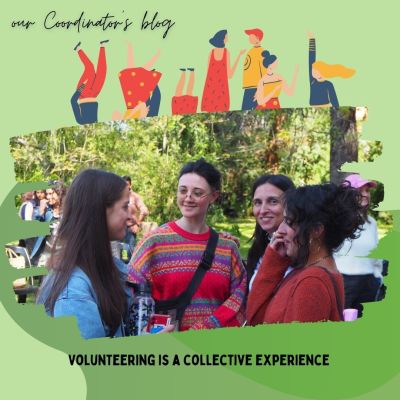I’m very happy with my decision; I have the flexibility to work on my own time, allowing me to explore the city and pursue other interests, such as Spanish and dance classes, and I get to meet people outside of the city limits and talk to them about their country instead of only reading about it in books. In my first couple of weeks I visited an English school and was both shocked and impressed by the frankness that one of the teachers, Alejandra, spoke about the issues the country was facing and showed me and Sandy, another volunteer, just how much of an advantage we were at by coming to the country with pounds and euros.
Having had my eyes opened to that privilege, it only reinforced the idea in my mind that I made the right decision, to give my time and take only experiences and a chance to improve my Spanish and meet new people, instead of any remuneration. I’m of course lucky in that I can spend this long a period of time without being paid, but that’s exactly why I think I shouldn’t be.
That’s not to say that everything is always plain-sailing: living in a country is always going to mean that there are more ups and downs than the near-permanent high you get whilst travelling. The other day I was (a little stupidly) using my phone whilst on a zebra crossing, and had to wrench it back as a motor cyclist grabbed ahold of it. I’d read about things like that happening in my guidebook, but the reality of it really came crashing home to me at that moment! It’ll make me be a little cautious for a while, and it shook me up a bit, but I’m fine and safe and luckily this is now only an anecdote and word of warning I can give to others.
There are other things that can be frustrating too such as the Spanish being different to the one I’ve learnt, as ‘Cogí el autobús’ (Spanish from Spain) becomes ‘Tomé el colectivo/el bondi’ in its Rioplatense variation. But, having been initially confused by so many different words, I’m now really enjoying getting to understand and use Argentinian Spanish.
In the grand scheme of things, these inconveniences really are minor, and only feel like they’re not at the time because I’m living in a foreign country in a culture I don’t fully understand. And learning about this culture and being able to feel like I’m helping to bring other people in to do the same is both rewarding and interesting. I’ve found the hospitality and generosity of Argentinian people to be wonderful and I’m really enjoying meeting and spending time with people from all different walks of life.





